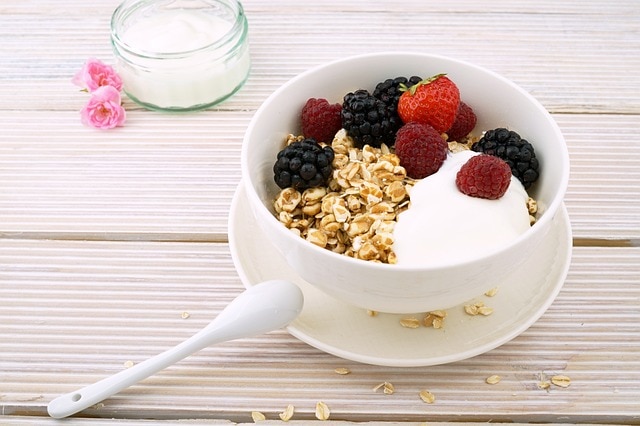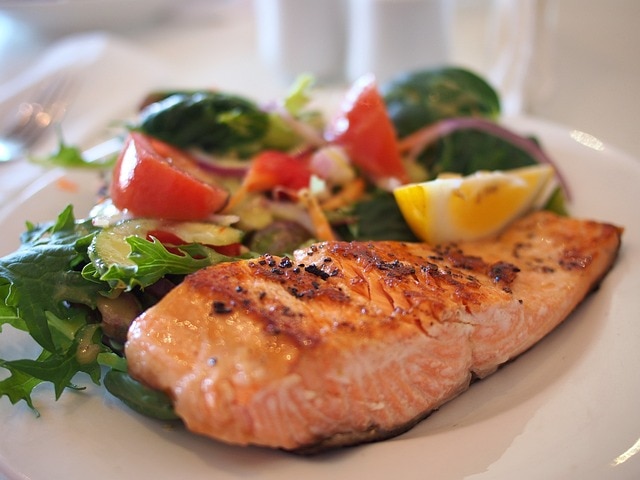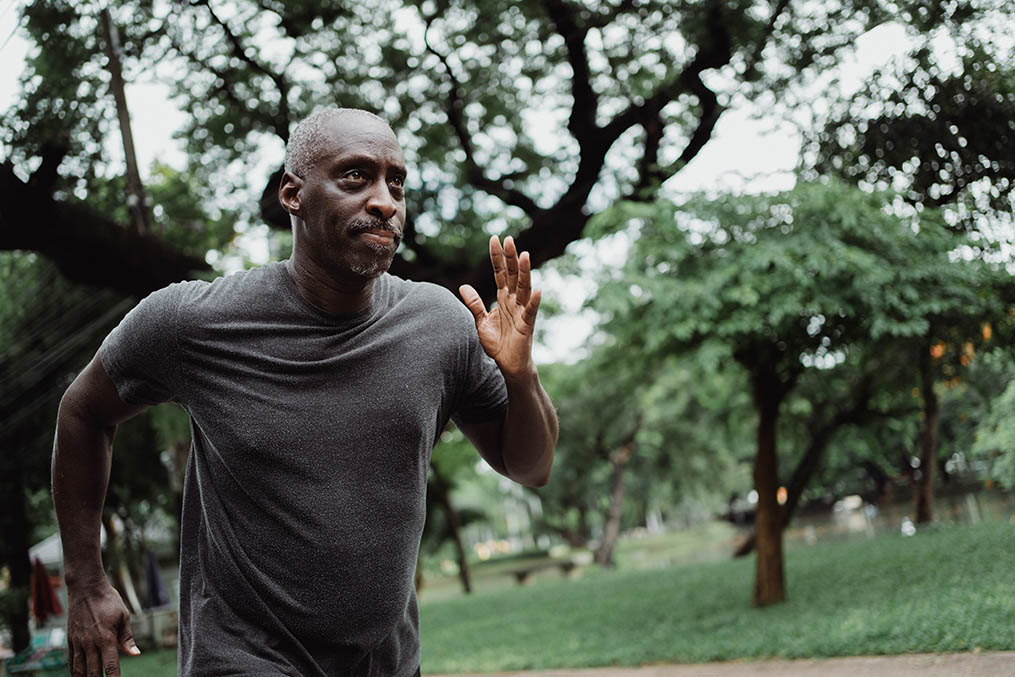Eating After a Run: Our Guide to Marathon Eating
Eating After a Run: Our Guide to Marathon Eating
We all know how important running and marathon training is leading up to race day. However, your health and hydration also play a big role in your performance. Saving those precious minutes can make all the difference. But don’t stress! We’ve listed the best foods to eat before, during and after a marathon, so you stay prepared. Read on!
Best foods to eat before a run
To prepare your body for the big run ahead, you need some food fuel. This includes regular meals with specific ingredients and a pre-run snack. We’ve got the details on the best foods to eat before a run below.
Pre-run meal ideas
You should have your pre-meal run around 3-4 hours in advance for a distance run, like a marathon. This fuelling meal should be high in carbs with some protein. Nutrients (like fat and fibre) that slow down digestion should be a very small part of this meal. The aim of this meal is to maintain good blood sugar levels, which help your muscles during your run. Here are the best foods to eat before a run:
- A bagel or slice of bread with peanut butter
- Oats
- Granola
- Homemade smoothies
- Fruit juice without bits
- Fruits without skin
- Wholegrain toast with eggs (boiled or poached)

Pre-run snack ideas
Your pre-run snack should be eaten 30-60 minutes before a marathon. The snack should be high in carbs and low in calories (again avoiding fats and fibre). Here are some good foods to eat before a run:
- A piece of fruit without skin (an orange, banana, or grapefruit)
- A handful of crackers
- Fruit juices without bits
- A sports energy bar that’s low in calories
- A small bowl of dry cereal
What to eat in the days before your marathon
So, you know what to eat just before and a few hours prior to your marathon, but what about in the days running up to the big day? You, of course, should also be drinking plenty of water. A few days before your marathon, make sure you’re eating:
- Rice
- Starchy vegetables (tomatoes, olives, courgette)
- Pasta (especially wholewheat)
- Lean meats
What to avoid eating before your marathon
In the days before your run, there are some foods that you should avoid eating. We mentioned that fats and fibres shouldn’t be eaten, so here are some examples:
- Tomatoes
- Mint
- High fibre vegetables (broccoli, beans and berries)
- Sugary drinks
- Spicy foods
- Fried foods
Essentially, avoiding acidic, high fibre and high-in-fat foods is probably the best thing to do.
What should I be eating after run?
The aim of eating after a run is to recover your body, replenish the nutrients you lost, and prevent injury. This meal should be strategic, just as your pre-run and intra-run foods are! They should be high in carbs and contain a good amount of protein. A good amount of salt is also suggested, due to the sodium you lost through sweat. All of this should be consumed along with a good amount of water to prevent dehydration.
We’ve listed the best foods to eat after a run. You can mix and match these key ingredients. Take a look:
- Greek yoghurt
- Granola
- Porridge and oatmeal
- Eggs (with veggies)
- Salmon
- Sardines
- Whole grains (brown rice, barley and quinoa)
- Wholewheat pastas
- Nuts (cashews, pistachios, almonds and hazelnuts)
- Bananas
- Nut butters (like almond or peanut butter)
- Broccoli
- Dried fruit
- Sweet potatoes
- Tomatoes
- Chickpeas
Along with eating well, remember to complete recovery runs for replenish your body!

What do I eat during a run?
Note that you’ll only need a mid-run snack if your run lasts longer than 90 minutes. When you’re training for a marathon, it’s also a great time to sample and intra-run snacks. You could try dried fruits (like raisins or apricots), energy bars, sports drinks but we go more in depth about these below.
Whilst you’re marathon training, see which of these feel the best. Try to also notice which of the snacks help to shave time off your run by providing you with the most energy.
Eating during a marathon
Eating during a marathon can really help you to maintain good energy and blood sugar levels. Like we said, every minute counts and a mid-run snack might just be the boost that you need. We’ve listed some of the best snacks and drinks to consume during a run, alongside drinking water, of course!
Sports drinks
Replenishing electrolytes whilst your running is important as you lose them during sweat. Sports drinks are made to help with this, but double-check to ensure they contain electrolytes.
Energy bars
These bars are designed to rebuild and recover your muscles thanks to the protein. The high amount of carbs can also maintain your energy levels.
Energy gels
Energy gels contain concentrated carbohydrates like sugar, along with possible traces of caffeine and electrolytes. These are super easy to carry around as they’re usually single serve and are designed to keep you going at your best.
How to stay hydrated before, during and after a marathon
Drinking water whilst you’re training, in the run up to your marathon, during, and after is very important. Staying hydrated not only improves your running abilities, it’s great for your overall health.
Of course, the nutrition we listed above is very beneficial for running season but water is important all year round. Whilst you are running and training, however, it’s likely that you will need more water than usual. This is to replace the water you lose when you sweat. Find out more on how best to stay hydrated during your workout with our guide.
We hope this article was helpful! Next, check out how to best drink water on your commutes.

Optimising Hydration for Interval Training
Discover the world of Interval Training. Learn practical tips to stay hydrated, fight fatigue, and regulate your body temperature thanks to proper hydration.
Take a look
Our 2024 Rise Up Runners
Witness the journeys of our three BUXTON Rise Up Runners and see the positive impact that running and training for the 20234 TCS London Marathon had on their mental well-being.
Take a look
Marathon Training: The good, the bad and the ugly
Explore the highs and lows of marathon training with Buxton. Learn about smart training plans, maintaining consistency, and managing physical and mental challenges.
Take a look
The ultimate guide to winter training
Let’s face it … training through winter can be challenging for many reasons!
Take a look
BUXTON Sweat and Tears Runners Share Their Post-marathon Feelings
And just like that, the London Marathon 2023 has come to a close! After experiencing that rush of adrenaline when they crossed the finish line, we asked our Buxton Sweat and Tears Runners to share their post-marathon feelings and any other reflections they had after completing this huge achievement. See what wisdom they had to share below.
Take a look
3 Rise Up Marathon Runners Tell Us About Running and Mental Health
3 Buxton marathon runners share with us how running and training for the marathon helped with their mental health. See their inspiring stories here.
Take a look
The Mental Benefits of Exercise
We already know that exercise is good for us but it can also help improve our mood, help with anxiety, stress and depression and also improve our sleep patterns.
Take a look
The Benefits of Cross Training
Cross training really just means incorporating a number of different activities into your exercise routine. By doing this you’ll use a range of movements and load a variety of muscles, bones, joints, and ligaments which in turn will help avoid the repetition or impact injuries associated with a single activity, such as running.
Take a look
Getting started and preparing your body and mind for training
“The miracle isn’t that I finished. The miracle is that I had the courage to start.” ~ John Bingham
Take a look